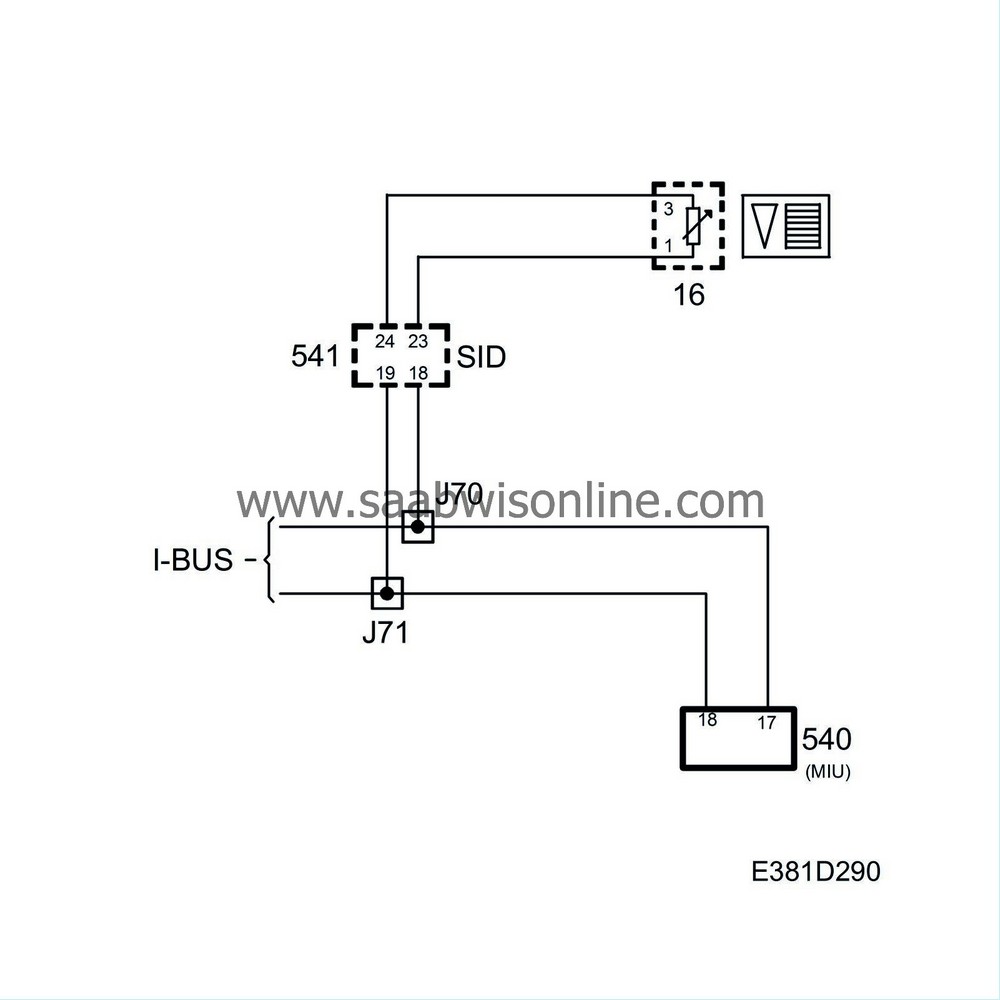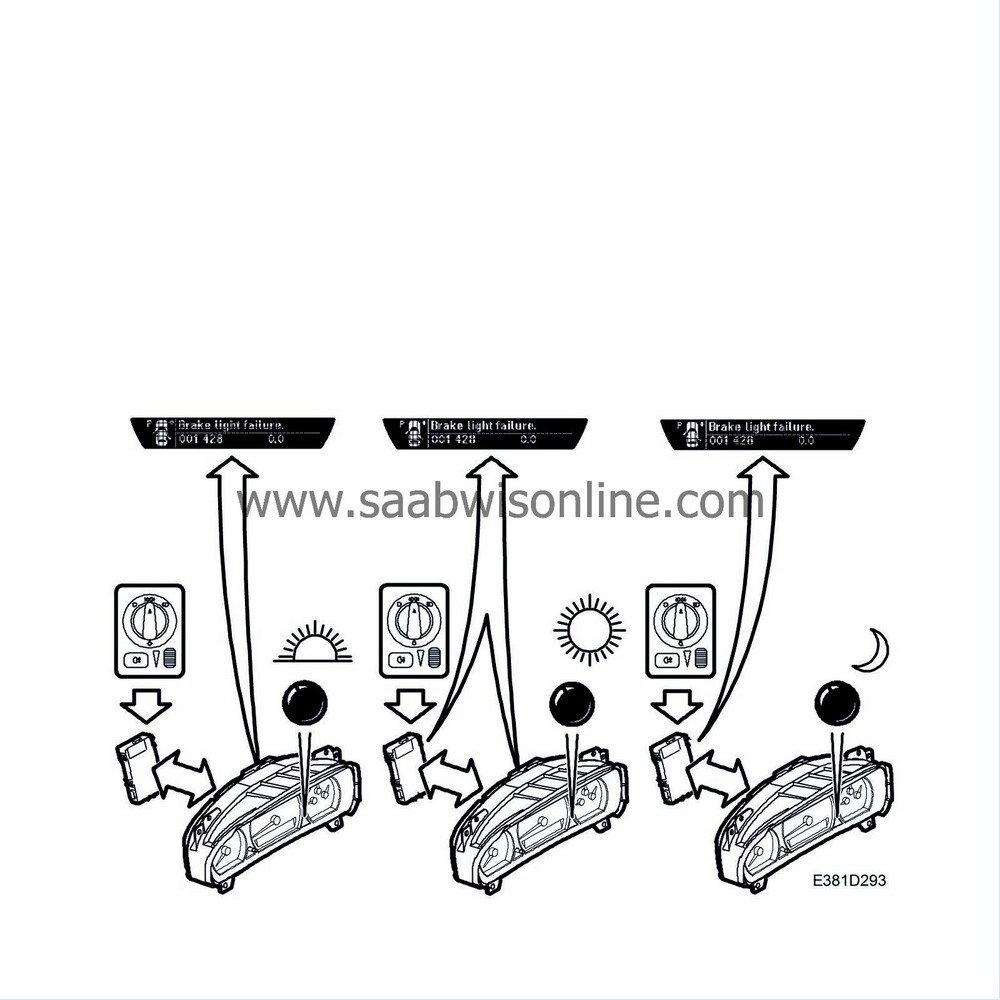Instrument and display lighting
|
|
Instrument and display lighting
|
So that the main instrument unit gauges, lamps and information display will be easy to read in both daylight and at night, as well as to achieve optimum bulb life, the main instrument unit's control module regulates the lighting intensity of the display according to the brightness in the cabin and the rheostat setting selected by the driver.
The rheostat is connected to the SID control module and the cabin light sensor is mounted in the main instrument unit. The main instrument unit reads the light sensor value and transmits this on the I-bus. The SID control module processes this value together with the rheostat value and continuously sends information about the following lighting values on the bus:


|
•
|
Rheostat value, unit %.
|
|
•
|
Rheostat value Night Panel (this value is not used by the main instrument unit).
|
|
•
|
Light intensity in the cabin, unit Lux.
|
|
•
|
Display lighting, unit %.
|
The main instrument unit uses the rheostat value to control the following instrument lighting:
|
•
|
Coolant temperature gauge
|
|
•
|
Selector lever indicator (automatic transmission)
|
When the main lighting is switched off and fuse 35 for daylight driving lights is removed, the SID control module sends the bus information Rheostat value 0 %.
Diagnosis
The function has its own diagnostics in the sending system.


When the light intensity value in the cabin exceeds a predetermined level, the SID control module sends the bus information RHEOSTAT VALUE 0%.
To increase bulb life, the main instrument unit's control module then turns off the following instrument lighting:
|
•
|
Coolant temperature gauge
|
For better visibility, the brightness of the indicator and warning lamps is set to two different levels. Low brightness at night and high brightness during the day.
The SID control module sends information on cabin light intensity, unit Lux, to the bus and at a predetermined level the main instrument unit's control module changes the brightness of the following lamps.
Common to all these lamps is that they are supplied with current (+15 circuit) from the main instrument unit and grounded through its control module.
|
•
|
Fuel level warning lamp
|
|
•
|
LH direction indicators
|
|
•
|
RH direction indicators
|
The brightness of the following lamps is changed between day and night in a similar way but they are all supplied with current from the component in question and grounded through the main instrument unit.
Diagnosis
The function has no diagnostics.

The SID control module calculates an appropriate value for the information display illumination using the rheostat value and the value of the cabin light intensity which comes from the light sensor.
When it is dark, the lighting is controlled by the rheostat value and when the light in the cabin increases it is controlled by the value of the light intensity in the cabin. This ensures that the odometer display will be easy to read in all lighting conditions.
The SID control module sends the calculated value to the bus as a Display lighting value, unit %.
The main instrument unit control module uses the value to control the information display illumination.
Diagnosis
The function has its own diagnostics in the sending system.







